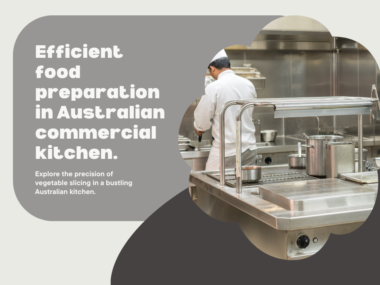Introduction
Canada, a country known for its multiculturalism, friendly inhabitants, bustling urban centers, and breathtaking natural landscapes, presents itself as an inviting destination for individuals seeking new opportunities. The nation welcomes immigrants with the promise of fulfilling employment and the chance to establish a new life. For those with a fondness for coffee and a knack for working with people, pursuing a career as a cafe barista presents a splendid opportunity to enter the Canadian job market with a valid work permit.
The Demand for Cafe Baristas in Canada
Canada has a thriving coffee culture, and the number of cafes is steadily increasing to meet consumer demand. According to Statistics Canada, over 12,000 food service businesses were classified as coffee shops or snack bars nationwide in 2020. With over 500 new cafes opening yearly, the barista job market remains strong. The pandemic disrupted operations at some businesses and accelerated digital innovations like mobile ordering and curbside pickup that helped many cafes adapt. Overall, the long-term outlook remains optimistic as Canadians’ appetite for specialty coffee continues growing.
According to job search site Indeed, there were over 4,000 active barista job postings across Canada in the first quarter of 2022. The cities with the most openings were Toronto, Montreal, Vancouver, Ottawa, Calgary and Edmonton. Locations near universities, office buildings, and transportation hubs tend to see higher turnover as baristas pursue new opportunities or further education. While part-time and seasonal roles are typical, many cafes offer full-time positions with benefits and opportunities to take on lead baristas, supervisors, or management duties over time. Knowing multiple languages spoken in your local community can also boost your chances of finding employment.
Barista Job Requirements and Responsibilities
The core responsibilities of a cafe barista involve providing excellent customer service while preparing and serving various hot and cold coffee beverages. Essential skills and qualifications sought by employers typically include:
- Customer service orientation with the ability to work well under pressure in a fast-paced environment. Pleasant demeanor and communication skills are essential.
- Proficiency in making espresso-based drinks like lattes, cappuccinos, and americanos using commercial espresso machines. Knowledge of different coffee brewing methods is also valued.
- Familiarity with food offerings like pastries, sandwiches, and snacks. Ability to operate a cash register and process customer payments.
- Schedule flexibility to work mornings, afternoons, evenings, weekends, and holidays as needed. Shiftwork is expected in the industry.
- A food handler’s certificate or completion of an in-house barista training program. Some large chains provide paid training.
- Able to lift bags of coffee beans or cases of supplies weighing up to 20 pounds. Standing for extended periods is part of the job.
Beyond these fundamentals, previous customer service experience, knowledge of coffee origins and roasting processes, and experience working in fast-paced restaurant environments are advantageous when applying for barista roles. Strong candidates also demonstrate enthusiasm, attention to detail, and a drive for continuous improvement.
Barista Work Permit Options for Immigrants
As a skilled trade, professional baristas who meet eligibility requirements have different pathways for obtaining a Canadian work permit:
Temporary Foreign Worker Program: Employers can bring in baristas from overseas through this federal program if they cannot find qualified Canadians or permanent residents to fill the job. Workers receive an open work permit and must stay employed full-time by the sponsoring company.
International Mobility Program: Foreign nationals may obtain an intra-company transfer work permit valid for up to three years for company transfers within a multinational organization.
Provincial Nominee Programs: Several Canadian provinces run nominee streams for skilled worker immigration, which can lead to permanent residency. Baristas meeting selection criteria can apply and potentially receive a provincial nomination and open work permit.
Spousal/Common-Law Work Permit: Partners accompanying skilled workers or business immigrants to Canada may qualify for a two-year work permit, including for barista jobs.
Post-Graduation Work Permit: International graduates from eligible Canadian colleges or universities receive a work permit for three years of Canadian work experience in an open market. Hospitality program graduates commonly utilize this.
Working Holiday Programs: Young people from partner countries, including Australia, Ireland, the UK, France, Germany, and Japan, can obtain an IEC work permit and work in Canada, including as baristas, for up to two years.
Carefully researching eligibility and applying through the correct stream is critical to obtaining a barista work permit. If you have questions, speak to an immigration lawyer or adviser.
Best Cities to Find Barista Jobs Across Canada
Let’s now explore in greater detail some of the top urban centers offering plentiful cafe barista opportunities around the country:
Toronto, Ontario
As Canada’s largest city and financial capital, Toronto has over 2,500 independent coffee shops serving its diverse population of nearly 3 million residents. The downtown core alone has hundreds of cafes near offices, universities, and transit. Popular neighborhoods like The Annex, Entertainment District, and Kensington Market offer unique coffee shop experiences. Large chains like Second Cup and Tim Hortons also employ many baristas across the GTA region. With its multicultural vibe, opportunities for arts and culture, and abundance of jobs in many industries, Toronto is a top pick for those seeking barista work alongside excitement.
Vancouver, British Columbia
On the west coast, with stunning mountain and ocean views, Vancouver has developed a cafe scene second only to European cities. Over 1,000 independent coffee establishments serve locals and tourists in neighborhoods like Gastown, Commercial Drive, Kitsilano, and Main Street. Alongside regular barista roles, some offer opportunities in coffee roasting, wholesale, equipment service, or cafe management with room for growth. Vancouver’s mild climate, natural beauty, and variety of festivals add to its appeal. Housing costs are high, but quality of life is outstanding for those willing to balance wages with an active outdoor lifestyle.
Montreal, Quebec
With a European flair and distinctly French-Canadian culture, Montreal charms visitors with its Old Port, Plateau Mont-Royal neighborhood, and cafe-lined streets. With close to 700 coffee shops across the island, this bilingual city is known for taking coffee breaks, called caffeine-cinq, very seriously. For French speakers, the job market is highly accessible with training offered in French, and many customers prefer service in their first language. Montreal is deeply rooted in art, music, and festivals year-round, making it a fun place to gain professional experience while immersed in culture. Overall, the cost of living is lower than in other major cities.
Calgary and Edmonton, Alberta
As the most prominent centers in western Canada outside B.C., Calgary and Edmonton have respective metro populations near 1.5 and 1.3 million. Both cities feature dozens of cafes employing baristas downtown and trendy communities like Inglewood in Calgary or Old Strathcona in Edmonton. While the economy relies heavily on oil and gas, coffee culture has also taken hold. Chains dominate, but artisanal roasters are increasingly popular. Low taxes, affordable housing, and proximity to Rocky Mountain parks are perks of life in Alberta’s urban hubs beyond barista pay. Winters bring some challenges, but summers are warm, and festivals abound.
Ottawa, Ontario
With over 190,000 federal government employees, Ottawa’s large daytime population fuels continuous demand at its 250-plus cafes. Beyond Parliament Hill, trendy hoods like the Byward Market, Hintonburg, and Westboro Village burst with coffee life. Seasonal festivals and outdoor activities along the Rideau Canal system add to the appeal of Canada’s culturally vibrant capital city. The cost of living is manageable compared to Toronto or Vancouver. Jobs exist in both official languages across Ottawa and its neighboring Gatineau regions of Quebec.
Those are some top picks to start your barista job search. Remember, opportunities also exist in many other cities across Canada that fit your specific situation and preferences. With diligent research, networking, and applications, the right spot is within reach.
Crafting Your Barista Resume
Making a solid first impression with employers starts with your resume. Here are some tips for highlighting your experience and skills to land a cafe job:
- Please use a simple, scannable format with sections for Contact Info, Work History, Education, Skills, and References. Keep it to one page at most.
- Tailor each resume to specific job postings by matching your keywords to theirs when possible.
- Quantify your customer service achievements, such as consistently positive feedback or sales contributions.
- Detail relevant technical skills like espresso machine operation, food handling certification, and cash register proficiency.
- Highlight transferable soft skills from past jobs, such as problem-solving, multitasking, and positivity under pressure.
- Show schedule flexibility through availability on evenings/weekends even if past roles did not demand it.
- Ask past employers for references who can vouch for your customer focus and work ethic.
- Proofread thoroughly, have others review it, and make updates until it shines professionally.
The resume is essential for standing out among other applicants vying for the same position. Crafting it effectively shows interviewers your most robust qualifications right away. Do not rely only on online applications – consider dropping off resumes in person or networking to express your enthusiasm directly to hiring managers. Their impressions of your interpersonal skills could make the difference when multiple candidates are equally qualified.
Nailing the Interview
Landing an interview means your resume has piqued an employer’s interest. It’s time to seal the deal with a stellar in-person impression. Some interview tips:
- Research the cafe and read online reviews to understand its brand and customer focus.
- Dress professionally yet appropriately for a food service role, like nice pants and a polo shirt.
- Arrive 10 minutes early and come with copies of your resume plus questions prepared.
- Make ample eye contact, smile, and give the interviewer a firm handshake.
- Provide confident, well-spoken answers to behavioral and situational questions about past challenges and successes.
- Show enthusiasm for coffee, food, hospitality, work culture, and helping others.
- Ask about paid training programs, benefits, growth opportunities, and typical shifts/hours.
- Send a thank you email within 24 hours restating your strong interest in the role.
Following up post-interview keeps your application fresh in the hiring manager’s mind. With some practice interviews under your belt, you’ll be well-equipped to shine in real situations. Stay positive – landing the first job is sometimes a matter of timing, and persistence pays off.
Starting Your New Cafe Career
With any luck, all your hard work has paid off, and a new barista job awaits you in Canada! Now is the time to fully immerse yourself in training, build rapport with coworkers, and give every customer interaction your best. Some initial tips:
- Complete any unpaid or paid training programs to the highest standard. Ask lots of questions to learn protocols thoroughly.
- Review employee manuals covering schedules, customer issues, food safety requirements, and more.
- Talk regularly with supervisors about feedback and goals for improvement each month on the job.
- Thank coworkers sincerely, handle tasks as a priority without excuses, and share the workload evenly.
- Smile genuinely, make eye contact, and address customers by name to build rapport over visits.
- Suggest additional products customers may enjoy based on their orders. Ask the right questions to provide solutions.
- Track regular customers’ names and favorite drinks. Greet them warmly each time as valued patrons.
With a dedication to continuous learning and serving others, you have a promising future, gaining experience, honing your craft, and potentially taking on new responsibilities in Canada’s booming coffee industry. Happy careers start here – best of luck!
APPLY HERE
If you’re ready to take the next step in pursuing a cafe barista job in Canada, consider exploring current openings on job boards, including:
- Indeed.ca – Canada’s most significant job search site aggregates postings from employers nationwide.
- Jobs.gc.ca – Government of Canada listings, including some part-time roles.
- LinkedIn.com/jobs – Browse profiles of hiring managers and apply directly through professional connections.
- Company websites—Many cafe chains, such as Starbucks, Second Cup, Bridgehead, and independent shops, list current openings on their online presence.
Remember to tailor your resume and cover letters specifically to each opportunity. During peak periods, consider walking resumes into busy cafes for on-the-spot interviews. With patience and persistence, the right job is within reach—start your search today and take the first step on an exciting new career path in Canada’s coffee world!


